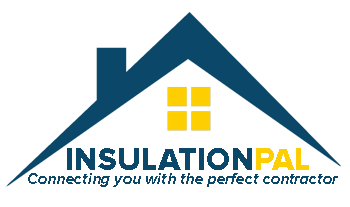Spray Foam Insulation: Definition and What it is
Insulation applied as liquid foam that expands to fill cavities, providing air sealing and high R-value.
What is Spray Foam Insulation?
Spray foam insulation is a two-component polyurethane product that's mixed and sprayed as a liquid, rapidly expanding to fill cavities and create a seamless air barrier. It's available in open-cell and closed-cell formulations, each offering distinct performance characteristics and applications.
Spray foam revolutionized insulation by combining thermal resistance with air sealing in a single application. Traditional insulation materials require separate air sealing steps, but spray foam expands into every crack and gap, creating an airtight envelope. This dual function makes homes significantly more energy-efficient—studies show spray foam homes use 40-50% less energy than homes with traditional insulation. The material adheres to framing, sheathing, and other surfaces, and won't settle, sag, or degrade over time.
Types of Spray Foam Insulation
- Open-Cell Foam: R-3.5 to R-3.7 per inch, lighter, vapor-permeable, excellent for interior walls and sound dampening
- Closed-Cell Foam: R-6 to R-7 per inch, dense, moisture-resistant, adds structural strength, ideal for exterior applications
- Flash-and-Batt: Thin spray foam layer for air sealing, topped with fiberglass batts for cost savings
- High-Density Roofing Foam: Specialized closed-cell for commercial roofing applications
Choosing Between Open-Cell and Closed-Cell
Open-cell foam costs less, provides excellent soundproofing, and works well in interior applications where moisture isn't a concern. It requires a separate vapor barrier in cold climates. Closed-cell foam costs more but offers higher R-value per inch, moisture resistance, and structural benefits. Use closed-cell for exterior walls, below-grade applications, cathedral ceilings, and anywhere moisture is a concern. For new construction, spray foam in rim joists and attic roof decks provides exceptional performance. Ensure proper ventilation during installation and allow adequate cure time before occupying spaces.
Benefits of Spray Foam Insulation
- Exceptional air sealing eliminates drafts and infiltration
- Highest R-value per inch available (closed-cell)
- Fills irregular cavities and hard-to-reach areas completely
- Long-lasting performance with no settling or sagging
- Moisture barrier properties prevent condensation (closed-cell)
- Can reduce energy bills by 40-50% compared to traditional insulation
Spray Foam Insulation Cost
Spray foam is the most expensive insulation but offers the best performance and energy savings.
- Foam type (open-cell: $1.50-$3/sq ft; closed-cell: $3-$7/sq ft)
- Target R-value and required thickness
- Project size and scope (larger projects cost less per square foot)
- Application area and accessibility
- Regional contractor availability and market competition
- Need for additional prep work or removals
How InsulationPal Can Help You
InsulationPal connects you with licensed, experienced insulation contractors. Compare multiple quotes to get the best value for your project.
Free Quotes: Get multiple competitive quotes from pre-screened contractors.
Expert Matching: We match you with pros experienced in spray foam insulation.
Quality Assurance: Licensed, insured, and verified contractors.
Related Services and Resources
Explore all services we offer
Discover the best attic insulation for hot, dry climates with spray foam, radiant barriers, and optimal R-values
Learn about moisture-resistant attic insulation options for humid climates, including spray foam and vapor barriers
Find the best attic insulation for cold, wet climates with strategies for moisture control and heat retention
Closed-cell and open-cell spray foam installation
Expert guides and tips on insulation
